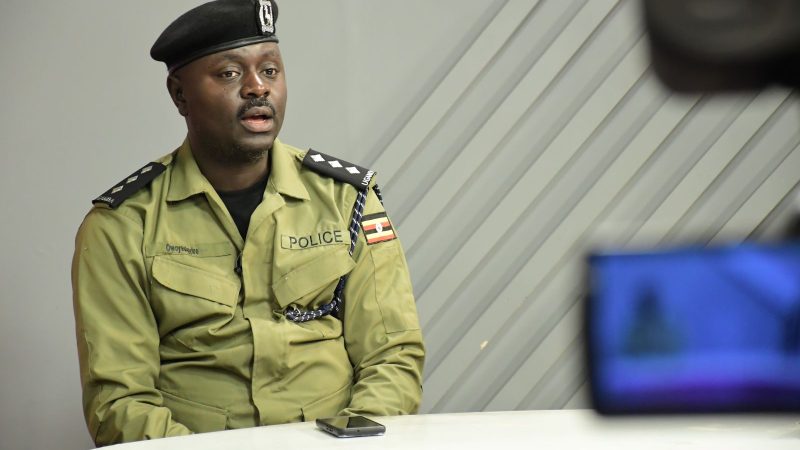Business Risk Management, especially with the challenges imposed by the Covid19 Pandemic, is one of the areas that have been earmarked as critical for businesses continuity and survival.
Today we speak to a Risk Management Expert, MR. SAMUEL GITTA. With 15 years of experience and a strong bias towards ICT risk management, Gitta currently leads the Risk & Compliance division at MTN Uganda where he serves as the General Manager Business Risk Management and Compliance. He shares with us how the largest tax payer has kept afloat and managed to post impressive business results amidst the raging pandemic that has crippled many companies.
To start with, what key lessons has MTN picked from the Covid 19 Pandemic?
When it comes to business resilience, the Covid-19 pandemic has taught us the importance of Technology as an enabler of business continuity in unprecedented times such as these where many companies have turned to technological processes, some executed remotely, to be able to serve their customers. With Technology as an enabler of business resilience in unprecedented times like these, companies are able to remain operational and continue serving their customers. Although the telecom sector, under which we fall was categorized under the essential services, there were obviously some challenges like limitation on number of our engineers allowed to move; completion of site recovery on account of a longer curfew period; reduction in our on-duty call centre staff due to the need to ensure social distance in office among others.
So how did you address some of the challenges mentioned above?
Prior to the Covid-19 pandemic, MTN had already developed a robust business continuity or resilience plan to ensure uninterrupted service delivery to its customers in times of adversity. We tried out the WFH (Work-From-Home) model by positioning some of our call center staff in a different location outside their work premises just as a preparation plan way before Covid-19. Therefore, when the pandemic emerged, we seamlessly adopted the WFH model primarily to protect the staff from infection exposure, as well as in compliance with the government of Uganda guidance and directives. On average 70% of staff are currently working from home. The key challenge has been on stability of power in various neighborhoods in which the staff reside. We have however come up with solutions to enable smooth operations of the staff. In some instances, staff were even enabled with office furniture. I am happy to say it lived up to the expectations by ensuring complete and uninterrupted service to the customers.
Going back to Technology, how has MTN Uganda, harnessed technology in its business continuity plan in the face of Covid 19?
MTN has deployed several cutting-edge technologies across the board to ensure seamless business continuity in addition to the process and human controls. With some of the best firewalls and encryption methods globally, we have been able to keep working seamlessly while protecting ourselves from cyber-attacks. Our control systems are reviewed and continuously audited by both internal and external firms with expert knowledge about them and they have been found to be safe and secure. While technology is utterly important, the issue of cyber security must be highly regarded. Cyber security is a big risk globally as indicated by several researches. Now with the insurgence of the covid-19 pandemic, cyber security is the second highest risk globally on account of the pandemic since more people working from home and as such, more prone to interception.
Talking of Cyber-attacks, how big of a risk are they to MTN Uganda?
The risk is big since MTN is a predominantly ICT company operating a Mobile Money business among other Fintech services. With a daily mobile money transaction of billions in amount, MTN Uganda is a highly targeted company. Just to echo what I mentioned early, MTN recognizes the risk and adequately designs mitigations to ultimately protect the customer. Mitigations deployed are both in form of proactive preventive controls as well as reactive controls to minimize the loss in the unlikely event that our defenses are compromised.
Is this why we keep seeing Mobile Money Fraud Cases?
No. That is not the case. As MTN, we carry out security assessments and audits of the mobile money eco system as a proactive way of checking the system against fraud among other threats and I can comfortably say that our Mobile Money platform is safe and protected from fraud at the operational level. Most, if not all, of these fraud cases happen at customer level mainly due to varied levels of alertness on the part of our customers. In most of the reported cases, it has been found that our customers share their MoMo PINs unknowingly and in the process, expose themselves to fraud. This is because one must have dual access to both the SIM card, and the PIN to successfully move money off your account. In the case of corporate customers, one must have access to the username and password as well as the phone to which the one-time password was setup to receive among many other layers of security, to transfer funds off the account. Our customers are often encouraged to keep their PINs safe & private; and secure their devices/phones with passwords. Lastly, if anyone suspects fraud, swiftly report any incidents to our customer service touch points both through the digital channels, our service centres, as well as the Uganda Police so we can follow them up to a logical conclusion.
Has MTN experienced any Money Laundering cases under its Mobile Money platform?
On account of the Mobile Money service, we are registered as an accountable party with the Financial Intelligence Authority. As such, we are required, and do comply to the Anti-Money Laundering (AML) laws and regulations. That law requires that every accountable party puts in place a framework to detect and prevent Money laundering and Terrorist financing. MTN has not spared effort & investment in its AML framework.
In general, Money Laundering and Terrorist financing within the Mobile Money ecosystem is not a significant concern due to the several layers of protection deployed against these schemes. We for instance have low transaction limits (approved by Bank of Uganda) as compared to values that are globally laundered; stringent onboarding Know-Your-Customer (KYC) using the biometric SIM card registration process. These make the Mobile Money ecosystem less attractive as a channel.
Going back to the issue at hand, was MTN Uganda’s business impacted by the Pandemic?
Like any other business, we experienced a downturn due to our customers’ reduced spending power. Some of our customers either had reductions in income or lost primary sources of income. However, having a resilience plan in place and ensuring the safety of our systems using the right technologies, processes and human controls has heavily minimized the impact of the risks we face as a business during the Covid19 pandemic. On the end of our customers, we developed various support offers broadly termed the “Yello Care Package” like a reduction in MoMo person-to-person charges, zero rating vital education and health websites among other initiatives. We also enabled other corporate customers with our Work-From-Home solutions, and several were able to remain operational. Once the lockdown was eased, business performance recovered, and this was reflected in the recently released MTN Group half year results. There is hope that indeed the performance targets set out for 2020 will be achieved. We continue to encourage the wider public to follow the government preventive guidelines, one of which we have recently emphasized in the “Wear-It-For-Me” campaign, together as Ugandans, we will successfully emerge from this crisis.
As a Business Risk Management expert, what are your last words to people operating businesses at this time?
The way we do businesses is fast changing and the traditional ways of doing business are becoming archaic. It is important to start riding the tide and find ways to digitize businesses as fast as possible. The on-going pandemic, being a learning point for all of us. The pandemic has also re-echoed the importance of resilience & crisis planning for sustainability of businesses.
The Respondent, Samuel Gitta, is the General Manager of the Risk and Compliance Division at MTN Uganda








